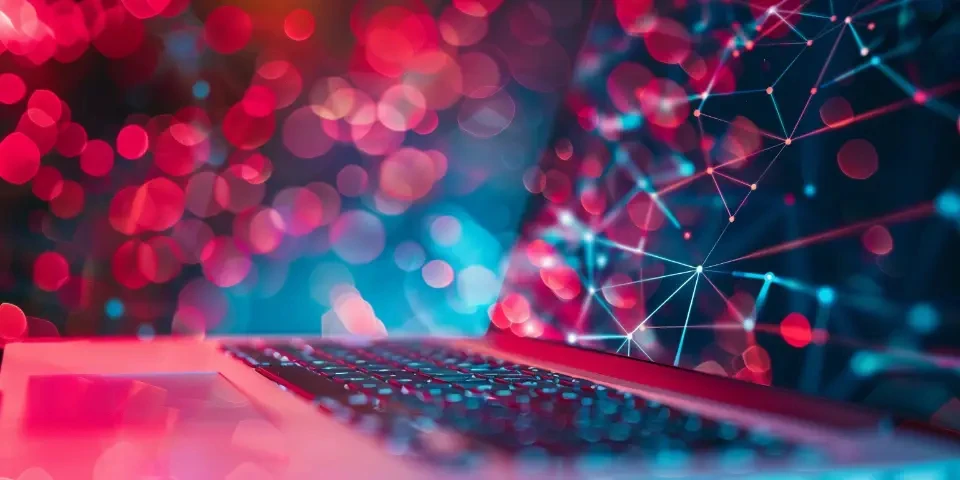Transforming Words into Poetry AI's Magic in Poem Creation
Poetry has always been a highly esteemed form of artistic expression, allowing individuals to convey their deepest emotions and thoughts through carefully crafted words. In the past, the creation of poetry relied solely on human creativity and imagination. However, with the advent of Artificial Intelligence (AI), the landscape of poetry creation has been revolutionized. AI has brought about a new era where machines can generate poems that rival those created by humans. In this article, we will explore the magic of AI in transforming words into poetry and its impact on the realm of artistic expression.
The Power of AI in Poem Creation
AI algorithms, powered by vast databases and machine learning techniques, have the ability to analyze countless poems from different periods and styles. By understanding patterns, rhythm, and structure in poetry, these algorithms can generate poems that adhere to similar guidelines. This enables AI to create original poems that mimic the various forms of human expression, such as sonnets, haikus, or free verse.

Furthermore, AI algorithms can analyze emotions and sentiments conveyed in different poems, helping them generate emotionally evocative lines. By drawing from a wide range of emotions and experiences, AI-generated poems can evoke powerful feelings within readers, just like traditional poetry.
The Challenges of AI in Poem Creation
Despite the remarkable advancements in AI-generated poetry, there are still some challenges that need to be addressed. One significant challenge is the lack of true creativity. While AI can effectively imitate existing styles and patterns, it often struggles with producing truly innovative and groundbreaking pieces. This limitation stems from the fact that AI algorithms rely on existing datasets, which are primarily composed of traditional poetry. As a result, some argue that AI-generated poetry lacks the human touch and originality that comes from personal experiences and genuine emotions.
Another challenge lies in the subjective interpretation of art. Poetry often carries deep personal meaning that can be open to multiple interpretations. AI, on the other hand, understands and generates words based on predefined patterns and correlations. This can lead to a lack of depth and nuanced understanding of themes and metaphors, which are crucial aspects of poetry.
AI Poetry Tools and Apps
As the demand for AI-generated poetry has grown, numerous tools and applications have emerged to cater to this artistic endeavor. One notable tool is "PoemPortraits" developed by Google Arts & Culture. This application uses AI to generate personalized poems based on users' selfies. By analyzing the facial expressions and emotions captured in the selfies, the AI algorithm creates unique poems that reflect the individuals' inner thoughts and feelings.
Another popular platform is "Poem Generator" by Language Tools. This tool allows users to input keywords or phrases, and it utilizes AI algorithms to generate poems based on the given input. Users can explore various poetic structures and choose the one that resonates with their desired poetic style.
The Ethical Debate Surrounding AI in Poetry
The rise of AI in poetry creation has sparked an ethical debate within the artistic community. Some argue that AI-generated poetry diminishes the value of human creativity and undermines the years of dedication and practice that poets invest in their craft. They argue that true poetry must come from a genuine human experience, and AI-generated poetry can never truly replicate that.
On the other hand, proponents of AI-generated poetry believe that it opens up new possibilities for creativity and expression. They argue that AI serves as a tool or collaborator for human poets, providing inspiration and suggesting unique combinations of words and themes that may have been overlooked.
Frequently Asked Questions
1. Can AI-generated poetry be considered genuine art?
While AI-generated poetry can be aesthetically pleasing and emotionally evocative, the notion of genuine art is subjective. Some believe that true art must originate from human creativity, while others appreciate the unique perspectives offered by AI-generated poetry.
2. Can AI replace human poets entirely?
AI can assist human poets, inspire them, and even generate poems that closely resemble human creations. However, AI still lacks the emotional depth and originality that comes from human experiences, limiting its ability to replace human poets entirely.
3. Are there any legal or copyright considerations with AI-generated poetry?
As of now, there are no specific legal frameworks regarding AI-generated poetry, but the debate surrounding authorship and intellectual property rights is ongoing. Determining the ownership of AI-generated poetry remains a complex matter that requires legal and ethical considerations.
Conclusion
Artificial Intelligence has undeniably transformed the landscape of poetry creation. AI algorithms can analyze vast amounts of existing poetry, imitating various styles and generating emotionally evocative lines. However, challenges related to creativity, depth, and interpretation still persist. As the technology continues to evolve, the ethical debate surrounding AI-generated poetry will inevitably intensify. Whether AI can truly replicate the essence of human emotions and experiences in poetry remains a question that only time can answer.
Explore your companion in WeMate